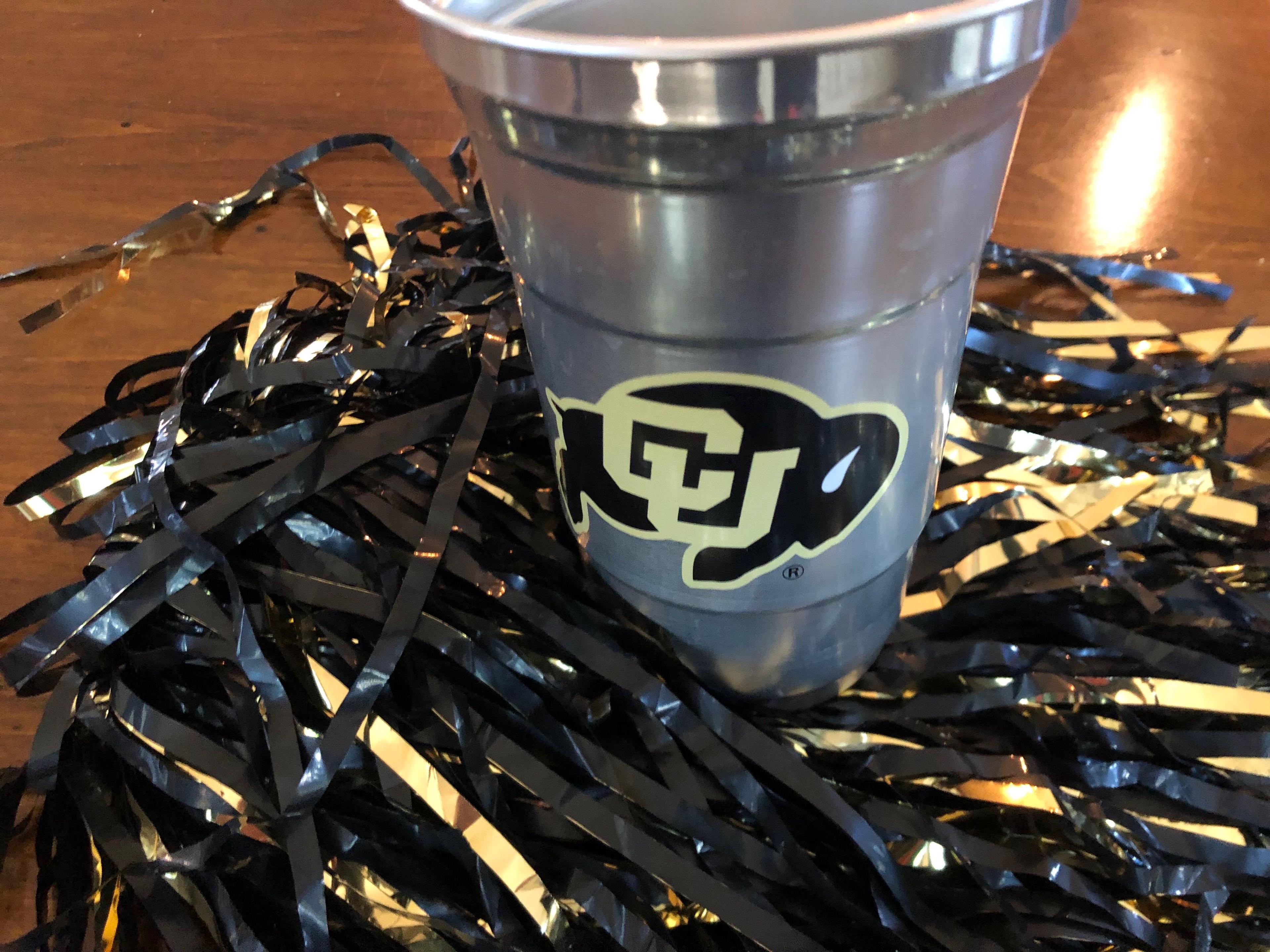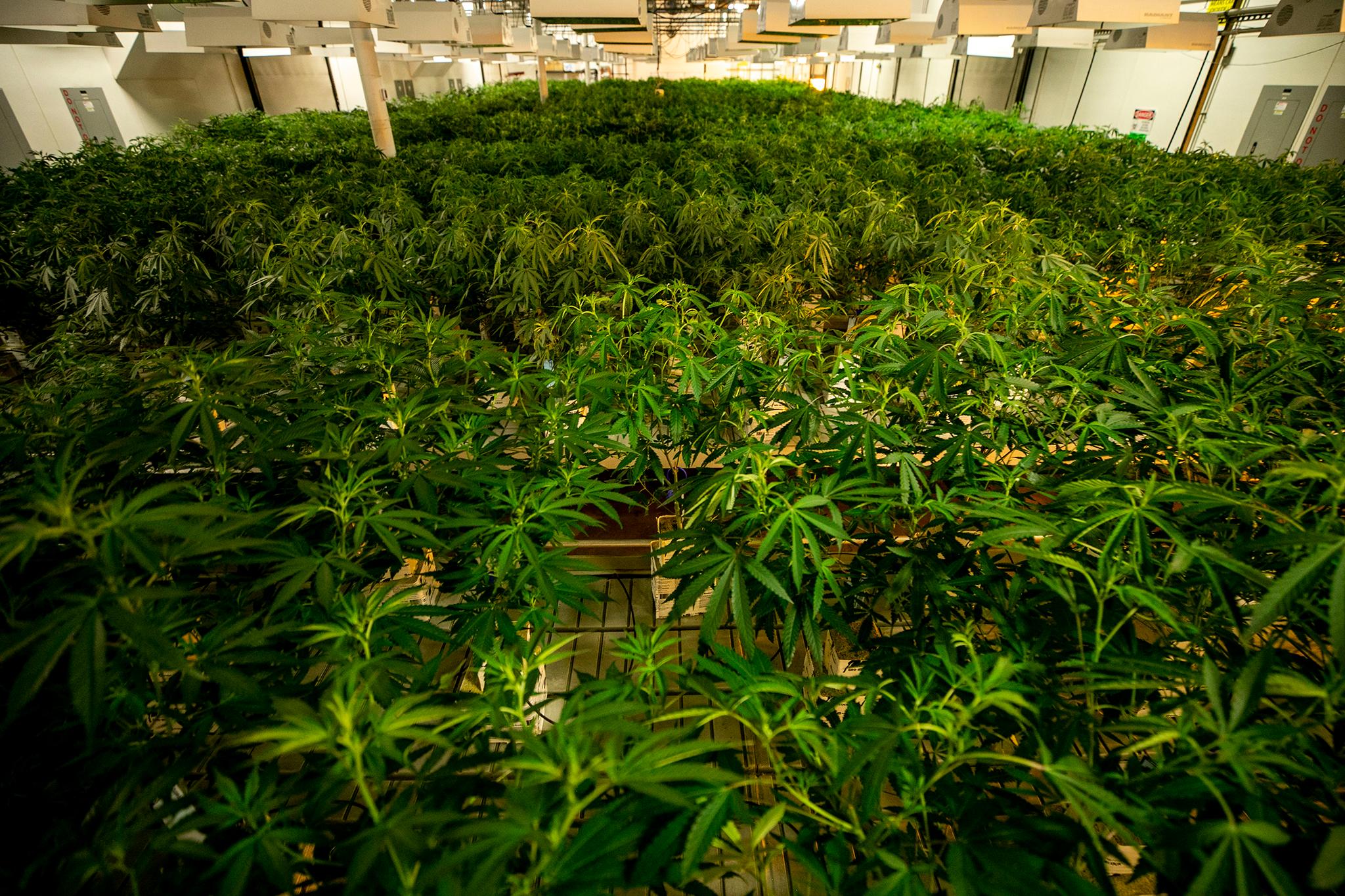
Last year, 25,721 tons of plastic were recycled in Colorado. You can bet a lot of that was single-use plastic like cups, bottles and food packaging.
Those plastics were probably turned into a trendy t-shirt or a yoga mat. Most importantly, it did not end up in a landfill.
But these three companies still think more can be done. They want to know why make anything out of plastic when you can use material like paper or aluminum?
From paper beer rings to aluminum cups, here's how your drinking habits are about to get more plastic-free.
Done With That Six-Pack? You Don't Have To Cut Up These Beer Rings
The Arizona-based company Footprint is working with Coors’ craft label, Colorado Native, to replace all plastic, six-pack can rings with their more sustainable option.
The rings are paper-based and degrade after about 12 hours in salt water, CEO Troy Swope said. Part of the challenge in creating the green alternative was finding a sturdy and reliable enough material to make sure beer cans didn’t end up on the ground.
“To soak the cans in an ice chest for 24 hours, and it's paper right, and then be able to pull it out and hold it, that was challenging to get it to work,” Swope said. “And then at the end, whatever we do to it, we don't want it to impact the end-of-life scenario.”
Footprint is fighting the plastic battle on another front too — coffee cups. Most of the single-use cups you see at restaurants and cafes may look like they’re made out of paper, but a plastic lining hidden inside the packaging makes them almost impossible to recycle.
The NextGen Cup Challenge named Footprint a winner in its global competition for developing sustainable cup solutions. The challenge is backed by massive companies like Starbucks and McDonald’s.
Footprint’s cup, similar to the can ring, is paper-based and can be recycled, composted or even landfilled.
“Any bin, you win,” Swope said. “We had to get it to where it would work with you know, hot coffees and the different solvents and bases of coffee and juice and other things, a soda. But it had to work and in all those scenarios, we're successful.”
CU Makes The Switch From Plastic Cups To Steely Grey Aluminum Ones
If you’re planning to attend a football game this season at the University of Colorado's Folsom Field in Boulder, don’t be surprised when they hand you a drink in an aluminum cup instead of a plastic one.
Ball Corporation, also located in Boulder, has teamed up with the university to replace all plastic cups in the stadium.
“75 percent of the world’s aluminum ever produced is still in use today,” said Sebastian Siethoff, general manager of aluminum cups at Ball. “Aluminum is recycled 70 percent, plastic about 30 percent. It’s the one substrate that as you recycle it and then melt it down, the molecular structure does not break down.”
Just because the new cups are metal, it won't feel like you're lugging a heavy thermos around the stands. Ball specifically wanted to make a cup that felt similar to a Red Solo cup.
“Whenever we show it to customers, stakeholders and consumers, they’re always amazed when they hold it in their hand first and that’s really where you realize the true power and potential of this innovation,” Siethoff said. “You know it weighs around 20 grams.”
(That's a tiny fraction of a pound for Americans bad at the metric system.)
When the cup is empty, Siethoff said it can be tossed into the recycling bin like any other aluminum product, including soda and beer cans.
The question of a single-use versus a reusable cup was a question in the seven years of development. Ball decided reusable was a route that wouldn’t work in the end.
“You’re looking at some cost parameters that simply don’t fit the model in terms of what stadium operators and concessionaires look for these days,” Siethoff said. “The United States is a very convenience driven culture ... So that’s where this really fits and it sort of gives us the first critical strategic step to get the consumer on the path of recycling more.”
Esquire also kindly pointed out that the cups could lead to the advent of "eco-responsible beer pong."
A 'Bike-Share For Coffee Cups' Gets Bigger
Still curious about a reusable cup? No fear: A company that launched what we described as a bike-share for coffee cups in Boulder last November is expanding.
Vessel provides stainless steel cups to cafes and restaurants for customers to check out.
“It’s free of charge, they leave with that cup and then they have five days to drop it off anywhere around town at one of our public-drop kiosks or participating locations,” Vessel founder Dagny Tucker said.
Once it’s returned, the cup is washed and put back into circulation. Vessel’s goal is to eliminate all single-use containers, regardless of what it’s made of. Even though aluminum is more sustainable than plastic, Tucker said, it still takes a lot of energy to recycle and turn it back into a new product.
“You just can’t beat reusables in the end because you get so many uses out of that initial spend of raw materials,” she said.
On Thursday, Vessel began operating in Berkley, Calif. and is in talks with other countries.
“New Zealand and Australia reach out a lot, as do a bunch of Asian countries,” she said. “But Canada in particular is passing legislation in 2021 and I think that’s gotten the interest of a lot of very large chain restaurants who are looking at how do we address this problem of plastic.”









